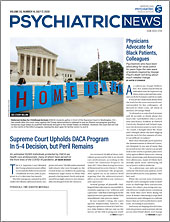On the four-year anniversary of the shooting at a gay nightclub in Orlando, Fla., the Trump administration finalized a regulation that eliminates protections against health care discrimination for lesbian, gay, transgender, and queer/questioning (LGBTQ) patients.
Section 1557 of the Affordable Care Act (ACA) prohibits discrimination in health care based on race, color, national origin, sex, age, and disability. During the Obama administration, Section 1557 was implemented with a rule that interpreted discrimination “on the basis of sex” to include discrimination due to a patient’s gender identity or history of pregnancy termination.
But on June 12, the Office of Civil Rights (OCR) at the Department of Health and Human Services (HHS) revised the rule. In a press release, HHS claimed that the original interpretation “exceeded the scope of the authority delegated by Congress” in the ACA. The new rule instead enforces the law “by returning to the government’s interpretation of sex discrimination according to the plain meaning of the word ‘sex’ as male or female and as determined by biology.”
The rule also eliminates nondiscrimination protections on the basis of sexual orientation and gender identity in numerous Centers for Medicare and Medicaid Services regulations.
“This rule will encourage discrimination in all facets of health care,” said APA CEO and Medical Director Saul Levin, M.D., M.P.A. “It is egregious to erase protections that ensure equal access to vital health care services at any time, and even more so during a pandemic.”
Last year, APA wrote a letter to HHS Secretary Alex Azar opposing the rule. “A rule that would allow health care workers to deny any health care services to transgender individuals or women who have terminated a pregnancy and scales back patient protections for underserved patients will only exacerbate existing problems of access,” the letter stated.
The rule is not based on medical science, pointed out Eric Yarbrough, M.D., chair of APA’s Council on Minority Mental Health and Health Disparities and past president of the Association of LGBTQ Psychiatrists. “It’s based on personal preference and personal moral opinions about who these people are.”
The timing of the new rule’s announcement—on the fourth anniversary of the Pulse nightclub shooting and in the middle of LGBTQ pride month—was just another slap in the face of LGBTQ individuals, Yarbrough said.
Jack Drescher, M.D., a psychoanalyst and clinical professor of psychiatry at Columbia University who served on the DSM-5 Work Group on Sexual and Gender Identity Disorders, expressed hope that the Supreme Court’s decision, which was issued just three days after the rule was announced, may make it more difficult for the federal government to pursue anti-LGBTQ policies. The decision affirmed that individuals in the LGBTQ community are protected from discrimination in the workplace by
Title VII of the Civil Rights Act of 1964.
“[T]he Supreme Court’s ruling calls into question the validity of OCR’s approach to sex nondiscrimination and the decision to interpret ‘sex’ solely as ‘biological sex,’ ” wrote Katie Keith, J.D., M.P.H., a principal at Keith Policy Solutions, in a blog for Health Affairs. “At a minimum, the court’s decision on Title VII strengthens forthcoming legal challenges to the Section 1557 rule.”
A legal challenge indeed appeared on June 22. A coalition of LGBTQ clinics and organizations filed suit in Washington, D.C., claiming that the “Supreme Court has rejected HHS’s position.”
“A number of people in the LGBTQ community have had bad experiences in their interactions with health care professionals,” Drescher said. “They may not seek out treatment or assistance as quickly as they should because of previous experiences. That’s already a problem, and if you make it structurally possible to allow prejudice to take place, you’ve created yet another enormous obstacle.” ■
The new rule is posted
here.
“Supreme Court Finds LGBT People Are Protected From Employment Discrimination: Implications for the ACA” is posted
here.
APA’s letter to Secretary Azar is posted
here.

